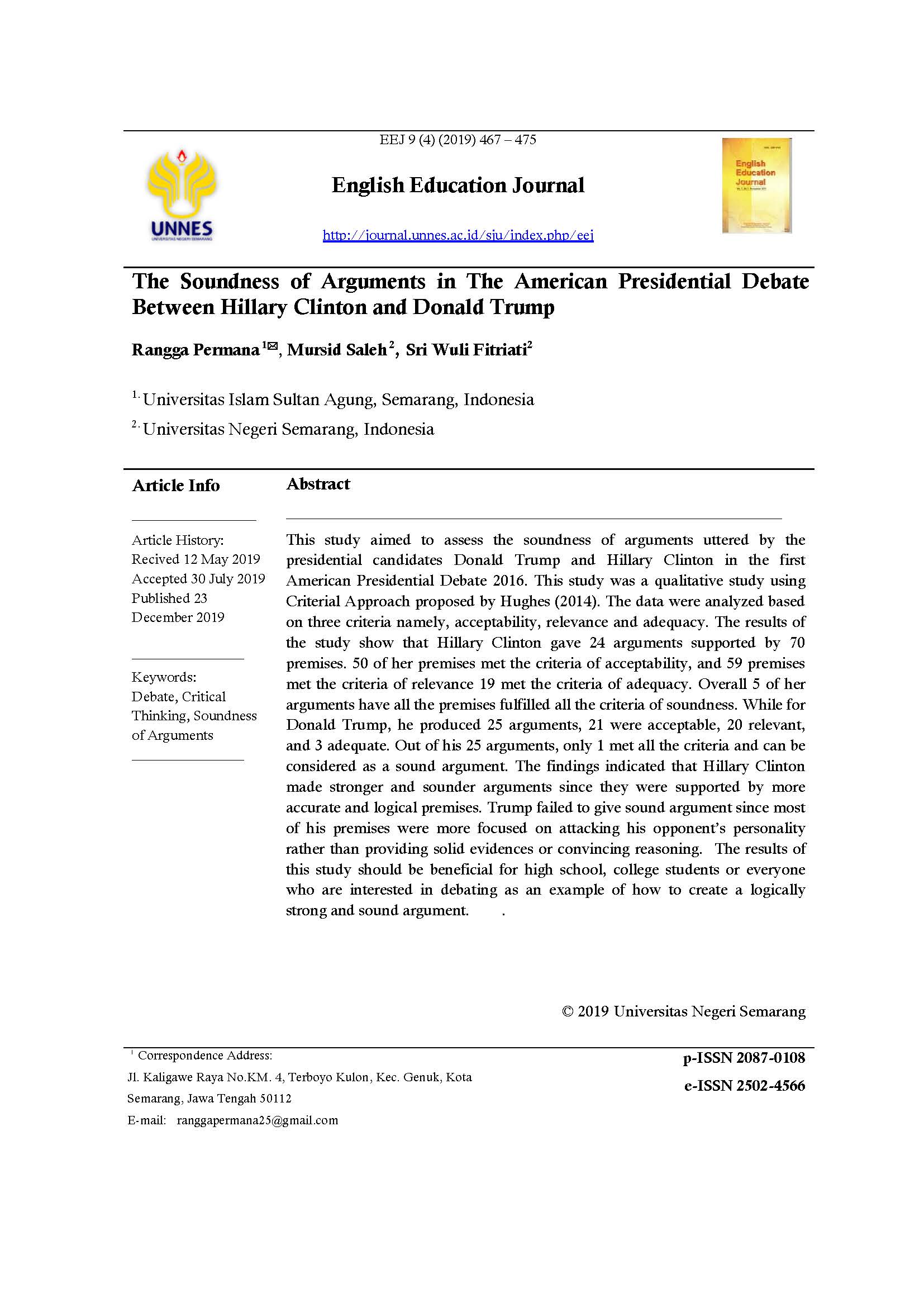THE The Soundness of Arguments in The American Presidential Debate Between Hillary Clinton and Donald Trump
##plugins.themes.academic_pro.article.main##
Abstract
This study aimed to assess the soundness of arguments uttered by the presidential candidates Donald Trump and Hillary Clinton in the first American Presidential Debate 2016. This study was a qualitative study using Criterial Approach proposed by Hughes (2014). The data were analyzed based on three criteria namely, acceptability, relevance and adequacy. The results of the study show that Hillary Clinton gave 24 arguments supported by 70 premises. 50 of her premises met the criteria of acceptability, and 59 premises met the criteria of relevance 19 met the criteria of adequacy. Overall 5 of her arguments have all the premises fulfilled all the criteria of soundness. While for Donald Trump, he produced 25 arguments, 21 were acceptable, 20 relevant, and 3 adequate. Out of his 25 arguments, only 1 met all the criteria and can be considered as a sound argument. The findings indicated that Hillary Clinton made stronger and sounder arguments since they were supported by more accurate and logical premises. Trump failed to give sound argument since most of his premises were more focused on attacking his opponent’s personality rather than providing solid evidences or convincing reasoning. The results of this study should be beneficial for high school, college students or everyone who are interested in debating as an example of how to create a logically strong and sound argument. .
